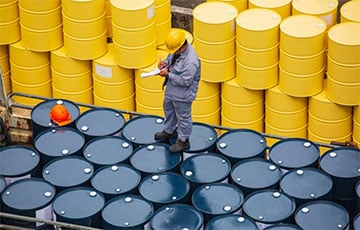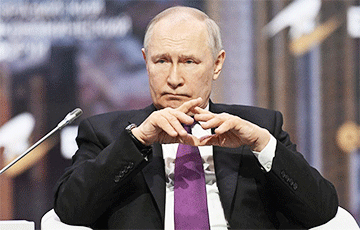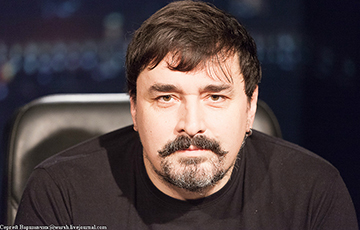Chaly On Belarusian Economy Prospects: I'm Inviting You To Take Popcorn
6- 17.04.2023, 12:29
- 11,336

PHOTO: ZHYZN-MALINA
Artificial growth still eventually turns into a recession.
The International Monetary Fund slightly improved the forecast for the Belarusian economy in 2023: analysts predict that Belarusian GDP will add 0.7%, and 1.2% in 2024. The World Bank also positively estimates the situation, assuming a small, but still growth and not a fall of the economy. What are the reasons for this optimism?
Siarhei Chaly speaks about it in the "Chaly: Economics" show.
“That's a good question. Experts believe that the economy is adapting to the sanctions in the form they are now. The three industries expected to grow are petrochemicals, engineering and food production, due to Russian cooperation.
There is an interesting thing: The World Bank experts say that soft monetary policy, aimed more at supporting growth than at fighting inflation, will help slow down the fall or even reach growth. But in the end, artificial growth still turns into a recession,” Mr Chaly said.
Siarhei Chaly states that global financial structures, albeit late, have begun to reassess the very mechanism of the sanctions, and therefore the medium-term prospects, for 2024-2025, remain rather gloomy.
“Because we are not talking about one-time damage – the consequences of sanctions are long-term, and the lack of access to investment, technology, etc., is much more important for the potential for future economic growth. Therefore, for example, according to Bloomberg, the Russian economy (and the economy of Belarus is closely connected with it) will shrink by 8% in total by 2026, which is a lot.”
The analyst noted a funny result: exactly on the day when the head of the Council of the Republic, Natallia Kachanava, started talking that the Belarusians do not need someone else's overseas dollars, but our own national currency is best for us, the Belarusian ruble immediately fell by 4.2%.
"Like that joke about call-off show: 'Do not show off, listen to your Felt Boots [the joke about false pride - Ed.]'," Siarhei Chaly said ironically. "Moreover, Kachanava managed to say in her speech that the Belarusians are strongly sure that the ruble is growing, and the National Bank is doing such a good job in such difficult conditions and conducting the correct policy of reducing the refinancing rate. Although we understand, returning to the World Bank's forecast, that too soft monetary policy will be carried out to the detriment of the fight against inflation - and this problem will primarily affect the confidence in the national currency.”
The economist is skeptical about the joint projects of Belarus and Russia on import substitution, about which Lukashenka and Putin spoke so much during the April meeting in Moscow.
Siarhei Chaly explains the reasons: the previous import substitution has worked in the Russian Federation because the authorities understood that the sanctions were imposed for a long time, which meant that they needed to protect their market and restore industry. Also, this practice was successful primarily in the agriculture and industrial spheres, but not in the high-tech sphere like pharmaceuticals, aircraft manufacturing or microelectronics. Although, the Belarusian ruler believes in it so strongly (not without the help of numerous reschedulings of the Academy of Sciences).
“Even the Belarusian authorities said that since the time of the Soviet Union they have retained the successful experience of machine tool building,” recalls Chaly. "The idea is: they will allocate money to us, and we will begin to implement import substitution projects - at first 15, then more, and we will start producing.
But it did not work according to the plan. The lion's share of the allocated money will go to the technical re-equipment of our machine-tool factories - that is, before producing new machines, you need to purchase the appropriate equipment. The situation is the same in some other industries: they are ready to produce, they just need to build a new plant using Chinese technology - and then everything will start to work, they think.”
The analyst makes a conclusion that progress on import-substituting joint projects works only where Russia needs it, and for Belarusian needs they allocate some “miserable 1.5 billion and then demand to report the results”:
"I'm inviting you to take popcorn and enjoy watching Lukashenka getting out of a mess in front of Putin. And to watch what all those who the previous years were saying that they were about to start and they would have everything done."










